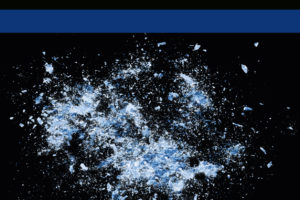Fragmented Narrative: Telling and Interpreting Stories in the Twitter Age

With the rise and rise of social media, today’s communication practices are significantly different from those of even the recent past. A key change has been a shift to very small units, exemplified by Twitter and its strict 240-character limit on individual posts. Consequently, highly fragmented communication has become the norm in many contexts. Fragmented Narrative sets out to explore the production and reception of fragmentary stories, analysing the Twitter-based narrative practices of Donald Trump, the Spanish political movement Podemos, and Egyptian activists writing in the context of the 2013 military intervention in Egypt.
Sadler draws on narrative theory and hermeneutics to argue that narrative remains a vital means for understanding, allowing fragmentary content to be grasped together as part of significant wholes. Using Heideggerian ontology, he proposes that our capacity to do this is grounded in the centrality of narrative to human existence itself. The book strives to provide a new way of thinking about the interpretation of fragmentary information, applicable both to social media and beyond.
Contributing to the emerging literature in existential media studies, this timely volume will interest students, scholars and researchers of narrative, new media and language and communication studies.
Table of Contents
Acknowledgements
Introduction
Chapter One – Theorising fragmented narrative: Knowing and being
Chapter Two – Telling stories with fragments: Vertical, horizontal and ambient narrative
Chapter Three – Interpreting fragmented stories I: Open texts, distanciation and writerly readers
Chapter Four – Interpreting fragmented stories II: Existential understanding, limited horizons and narrative forestructuring
Chapter Five – Narrative and truth: Correspondence, coherence and disclosure
Conclusion – Stories, Citizens and Being
Glossary of Heideggerian terms
Bibliography
Index
Neil Sadler is Lecturer in Translation at the Centre for Translation and Interpreting at Queen’s University Belfast. He holds an MA and PhD in Translation and Intercultural Studies from the University of Manchester and his research centres on the uses and nature of multilingual narrative in digitally mediated contexts, particularly in the Arab world. His work has previously been published in New Media & Society and The Journal for North African Studies and he has contributed entries to The Routledge Encyclopedia of Citizen Media and The Routledge Handbook of Arabic Translation.
Research has yet to fully grapple with the ways in which our media practices have been shaped by our engagement with increasingly fragmented media texts. This powerful book remedies that, showing how narrative still plays a fundamental role in our experience of tying together disparate pieces of information. Media platforms may evolve, but narrative still lies at the core of human existence.
Emiliano Treré, Cardiff University, UK